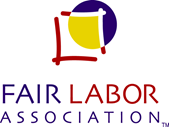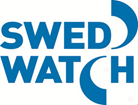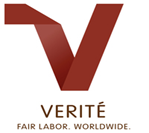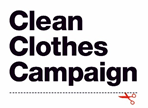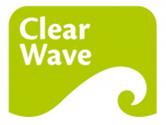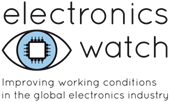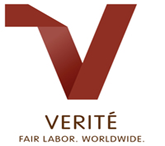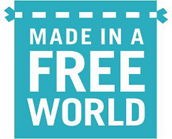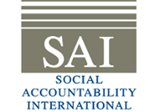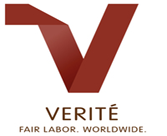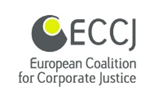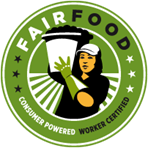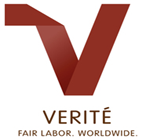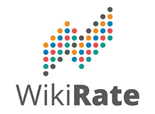NGOs & Civil Society | ||
.
Name of Resource | A Guide to Traceability: A Practical Approach to Advance Sustainability in Global Supply Chains |
Type | Report |
Country / jurisdiction | Global |
Organization | Business for Social Responsibility |
Date of publishing | 9 April 2014 |
Description | This guide provides an overview of the importance of traceability for sustainability purposes, outlines the global opportunities and challenges it represents, and summarizes practical steps for implementing traceability programme within companies. Research for this guide revealed that traceability is a tremendously impactful tool for advancing sustainability objectives, but it still has a long way to go before it is an integral part of sustainable supply chain management and used widely by companies. At present, only a very small percentage of commodities are traceable on sustainability attributes. |
Availability |
Name of Resource | Addressing Risks of Forced Labor in Supply Chains: Protecting Workers from Unfair Restrictions on their Freedoms at Work |
Type | Practical/implementation tool |
Country / jurisdiction | Global |
Organization | Fair Labor Association |
Date of publishing | 17 August 2017 |
Description | The brief focuses on best practices for identifying and eradicating forced labour at the supplier level. It explains the indicators of forced labour as incorporated into the Fair Labor Association (FLA) code, provides examples of risks and violations reported by the FLA’s on-the-ground assessors, and offers recommendations of proactive and cooperative steps that brands can take to ensure that suppliers do not engage in or tolerate trafficking and forced labour. |
Availability | ENG: http://www.fairlabor.org/report/addressing-risks-forced-labor-supply-chains |
Name of Resource | Agents for change. How public procurers can influence labour conditions in global supply chains. Case studies from Brazil, Pakistan and Thailand |
Type | Report/analysis |
Country / jurisdiction | Global |
Organization | SwedWatch |
Date of publishing | 15 November 2016 |
Description | The report focuses on the social aspects of supply chains and examines how contracting authorities in the EU can use social criteria to improve labour conditions in countries where poor labour standards are rife. The report draws on experiences and lessons learned from the Swedish public market in the hope that they may prove useful to policy-makers and contracting authorities in other countries. The report also aims to provide Sweden’s own purchasing authorities with an overview of risks and opportunities. Case studies presented review labour conditions in: 1) Pakistani factories that produce surgical instruments; 2) Thai poultry factories; and 3) Brazilian coffee farms, and illustrate how Swedish contracting authorities have used social criteria (or not). |
Availability | ENG: http://www.swedwatch.org/wp-content/uploads/2016/11/82_Agents-for-Change-enkelsidor.pdf |
Name of Resource | An Ethical Framework for Cross-Border Labor Recruitment: An Industry/Stakeholder Collaboration to Reduce the Risks of Forced Labor and Human Trafficking |
Type | Report / analysis |
Country / jurisdiction | Global |
Organization | Verité, Manpower Group |
Date of publishing | 2012 |
Description | The Ethical Framework for Cross Border Labor Recruitment offers a set of specific operational practices (“Standards of Ethical Practice”) for recruitment firms that operate across borders. These practices are reinforced by a Verification and Certification system to document compliance and provide essential information to third parties and potential business partners. The framework, including the verification process, is designed as a remedy to the current institutional fragmentation of the cross-border recruitment marketplace, where employers, recruiters, and their local and regional subcontractors may operate in different jurisdictions with limited accountability to one another, to regulators, or to workers. The framework creates a set of credentials and information for third parties that will help eliminate unscrupulous brokers. |
Availability | ENG: https://www.verite.org/wp-content/uploads/2016/12/ethical_framework_paper.pdf |
Name of Resource | An Introduction & Commentary to the 2011 UN Guiding Principles on Business and Human Rights & their Implementation in the Maritime Environment |
Type | Report / analysis |
Country / jurisdiction | Global |
Organization | Human Rights at Sea |
Date of publishing | 2016 |
Description | The commentary explains how and why the UN Guiding Principles on Business and Human Rights should apply throughout the maritime environment to all business enterprises and in all business operations throughout the maritime supply chain, both on land and at sea. It highlights risks, delivers case studies and identifies pertinent examples, including references to existing business and human rights policies, and their application. The publication also provides background to the increasingly common requirement for consideration and use of Human Rights Impact Assessments in the business sector, as highlighted by the European Commission’s guidelines on the analysis of human rights in impact assessments as part of the Better Regulation agenda adopted by the Commission in May 2015. The publication offers some key self-help guidance as part of basic management actions that can be taken to address implementation of business and human rights in an enterprise. |
Availability | ENG: https://www.humanrightsatsea.org/business-and-human-rights/ |
Name of Resource | Beyond SB 657: How Businesses Can Meet and Exceed California’s Requirements to Prevent Forced Labor in Supply Chains |
Type | Report/analysis |
Country / jurisdiction | Global |
Organization | The Alliance to End Slavery and Trafficking |
Date of publishing | January 2013 |
Description | The report provides guiding principles for companies required to comply with California’s anti-trafficking law and for any company working to eliminate forced labour from their supply chains. Key elements of the report include details on: tracing and verification of product supply chains; quality supplier audits; approaches to prevention; internal accountability standards; mapping high risk areas; empowerment of workers and vulnerable communities; employee and management training, and; public posting of a company’s engagement towards eliminating human trafficking and slavery within supply chains. |
Availability |
Name of Resource | Clean Clothes Campaign |
Type | Platform for co-operation, Knowledge/information hub |
Country / jurisdiction | Global |
Organization | Clean Clothes Campaign |
Date of publishing | 1989 |
Description | Clean Clothes Campaign is an international alliance dedicated to improving working conditions and empowering workers in the global garment and sportswear industries. It brings together trade unions and NGOs covering a broad spectrum of perspectives and interests, such as women’s rights, consumer advocacy and poverty reduction. As a grass-roots network of hundreds of organizations, both in garment-producing and in consumer markets, the Campaign can identify local problems and objectives and transform them into global actions. Clean Clothes Campaign develops campaign strategies to support workers in achieving their goals. |
Availability |
Name of Resource | Clear Wave: transparency business-labelling initiative |
Type | Certification/standards’ assessment |
Country / jurisdiction | Lithuania |
Organization | Clear Wave |
Date of publishing | 2007 |
Description | Clear Wave is a transparency business-labelling initiative. The main objective of the initiative is to encourage a transparent and ethical Lithuanian business practice. Companies involved in this project assume the responsibility for the creation of a responsible and transparent way to operate, and to encourage their business partners to: take transparent and fare participation in the tenders (public procurement) – without corruption to their organizers and members of the jury, without resorting to illegal financial and non-financial measures to gain advantage against other participants; comply with the laws of the Republic of Lithuania and fairly pay the fees and taxes provided; maintain transparent accountability and payment to their employees. |
Availability |
Name of Resource | Compliance Report Update: Cal-Comp Electronics, Thailand |
Type | Report/analysis |
Country / jurisdiction | Thailand |
Organization | Electronics Watch |
Date of publishing | October 2018 |
Description | This report documents research conducted by Electronics Watch from 2016 to 2018, based on interviews with recruitment agents and migrant workers from Myanmar working at Cal-Comp’s two major production facilities in the Samut Sakorn and Petchaburi Provinces of Thailand. This research shows that whilst there has been considerable improvements in treatment of migrant workers at these two facilities, Cal-Comp remains far from complying with ethical recruitment standards as stated in the RBA Code of Conduct. As a result, migrant workers are still at risk of forced labour. Whilst remaining in compliance with Thailand’s migration laws, systematic exploitation of migrant workers has arisen in Cal-Comp’s migrant worker recruitment channels, resulting in non-compliance with Myanmar’s prescribed limits on fees that can be charged to migrating workers. Electronics Watch makes an update report on the situation as well as a Remedy Proposal for Cal-Comp Workers, which can be found here: http://electronicswatch.org/ca/proposta-de-soluci%C3%B3-per-a-les-persones-treballadores-de-cal-comp-tail%C3%A0ndia-febrer-2019_2556087.pdf?disposition=attachment |
Availability |
Name of Resource | Compliance Report: Foxconn in Pardubice, Czech Republic |
Type | Report/analysis |
Country / jurisdiction | Czech Republic |
Organization | Electronics Watch |
Date of publishing | April 2017 |
Description | This report is a follow-up to the April 2016 Factory Risk Assessment: Foxconn at Pardubice, Czech Republic (Electronics Watch Risk Assessment) and the Hewlett Packard (HP) findings reported in July 2016 and December 2016. It assesses labour rights compliance in Foxconn´s Pardubice factory based on Czech labour law, ILO and EU labour standards binding in the Czech Republic, and the HP Supplier Code of Conduct. Part I offers an overview of the investigatory findings, which are explained in detail in the body of the report. Annex I includes a simplified but comprehensive review of findings, as well as recommendations for improvements. |
Availability |
Name of Resource | Corporate approaches to tackling modern slavery |
Type | Report/analysis |
Country / jurisdiction | United Kingdom |
Organization | Ethical Trading Initiative, Hult International Business School |
Date of publishing | 16 October 2015 |
Description | The Ethical Trading Initiative (ETI) and Ashridge Centre for Business and Sustainability at Hult International Business School partnered to lead the research into company perspectives and responses to the risks of modern slavery in their global supply chains — against a backdrop of increasing global human rights legislation and reporting requirements. The report reflects an overview of current practice in the companies who volunteered to participate in a survey. It is not a guide for good practice, nor an assessment of companies’ readiness or capacity to meet the requirements of new legislation. Instead, it draws on valuable insights from a group of companies that are likely to be further along in their thinking and practice than others. |
Availability | ENG: https://www.ethicaltrade.org/resources/corporate-approaches-tackling-modern-slavery |
Name of Resource | Corporate Compliance with the California Transparency in Supply Chains Act of 2010 |
Type | Report/analysis |
Country / jurisdiction | United States of America |
Organization | Development International |
Date of publishing | 2 November 2015 |
Description | The study focuses on the first disclosure law addressing human trafficking and slavery within the global marketplace – the California Transparency in Supply Chains Act of 2010 (CA-TISCA). CA-TISCA requires human trafficking and slavery-pertinent disclosure statements from large corporate earners operating in the state. The degree of corporate disclosure compliance with CA-TISCA was systematically evaluated by individually assessing qualifying companies’ statements as disclosed against eight compliance criteria based on the law’s core requirements, resulting in a compliance score, and seven indicators regarding affirmative conduct, yielding an affirmative score. The study reveals that, overall, compliance performance greatly varies between companies. The average disclosure compliance score was 60%. Forty-one (41%) percent of companies were found to have a corporate disclosure score on or above the 70% mark. |
Availability | ENG: http://media.wix.com/ugd/f0f801_0276d7c94ebe453f8648b91dd35898ba.pdf |
Name of Resource | Database & Analysis of Company Reporting |
Type | Registry / data base |
Country / jurisdiction | Global |
Organization | Human Rights Reporting and Assurance Framework Initiative, co-facilitated by Shift and Mazars |
Date of publishing | August 2016 |
Description | The United Nations Guiding Principles Reporting Database is an independent, public resource developed by Shift that makes it possible for anybody to see what some of the world’s largest companies say about human rights. By shining a light on companies’ existing reporting about their human rights practices, the source aims to increase awareness of both lagging and leading practices, thereby incentivizing improvements that can make a real difference in the lives of people affected by business. |
Availability |
Name of Resource | Enable Training toolkit on addressing child labor and forced labor in agricultural supply chains |
Type | Practical/implementation tool |
Country / jurisdiction | Global |
Organization | Fair Labor Association |
Date of publishing | 12 December 2018 |
Description | The Fair Labor Association developed the Enable Training Toolkit to prepare sustainability managers, master trainers, and field-level practitioners to apply components of the USDA Guidelines for Eliminating Child Labor and Forced Labor in Agricultural Supply Chains in the context of their own organizations. It aids in the understanding of implementing a human rights due diligence programme. The Enable Toolkit contains six training modules, a facilitator's guide, presentation slides, and a participant manual. The toolkit provides guidance to companies and suppliers who are interested in adopting the USDA Guidelines or similar responsible sourcing frameworks, and supports fulfilment of emerging regulatory requirements on supply chain mapping and the abolition of child labour issues in supply chains. The EnableToolkit is based on a modular approach and can be conducted consecutively or as independent courses. |
Availability |
Name of Resource | Engaging the private sector to end human trafficking. A resource guide for NGOs |
Type | Report/analysis |
Country / jurisdiction | Netherlands |
Organization | La Strada International, Somo |
Date of publishing | October 2015 |
Description | The Resource Guide provides guidance and background information for anti-trafficking NGOs in Europe on the role of the private sector in trafficking in human beings. It provides facts and figures on human trafficking and forced labour in Europe, an explanation of the overlaps and differences in the legal definitions of human trafficking and forced labour, as well as numerous case studies on human trafficking and forced labour in Europe throughout the text. It also provides some strategic guidance on whether and how anti-trafficking organizations can best engage with the private sector, if they choose to involve this new stakeholder in their work. |
Availability |
Name of Resource | Ethical Trading Initiative Base Code |
Type | Policy |
Country / jurisdiction | United Kingdom |
Organization | Ethical Trading Initiative |
Date of publishing | 2018 |
Description | The Ethical Trading Initiative (ETI) has developed a code of labour practice - the 'Base Code' - reflecting the most relevant international standards with respect to labour practices which will be used as the basis of its work. ETI member companies are expected to adopt the Base Code, or to adopt their own code so long as it incorporates the Base Code. The Base Code which is accompanied by a set of general principles concerning implementation provides a foundation for the ETI's philosophy of learning. Member companies must require that suppliers meet agreed standards within a reasonable timeframe, and that performance in this regard is measured, transparent and, ultimately, a precondition to further business. |
Availability |
Name of Resource | Fair Hiring Toolkit |
Type | Guidance on policy / legislation implementation |
Country / jurisdiction | Global |
Organization | Verité |
Date of publishing | 2015 |
Description | The Fair Hiring Toolkit offers tools, guidance, and approaches to support the responsible recruitment and hiring of migrant workers in global supply chains. In the Fair Hiring Toolkit, investors will find material that can be used to support investor campaigns, corporate advocacy, shareholder dialogue and investment analysis. Readers will find material relating to corporate codes of conduct, training and capacity building, reporting and transparency, and social auditing, with each focused on preventing the risks of recruiter-led forced labour and protecting migrant workers. These tools can help evaluate a company’s level of risk and commitment; and support advocacy to improve corporate policies, programmes and performance against exploitation in the supply chain. |
Availability |
Name of Resource | Forced Labour Risk Determination and Mitigation |
Type | Analysis tool |
Country / jurisdiction | Global |
Organization | Made in a Free World |
Date of publishing | 2011 |
Description | Forced Labour Risk Determination and Mitigation is a software product that gives insight into the complex web of global business-to-business commerce and locates specific hot spots of risk in a supply chain for any industry. Forced Labour Risk Determination and Mitigation provides companies with a clear blueprint to mitigate their risk of unknowingly investing in suppliers who exploit forced or child labour. |
Availability |
Name of Resource | Guide for the protection and promotion of human rights in public contracting |
Type | Guidance for policy / legislation implementation |
Country / jurisdiction | Spain |
Organization | International Institute for Nonviolent Action, Servei Civil International, Nexes |
Date of publishing | 2017 |
Description | This guide was developed for public administration bodies, especially in the Catalan region, on how to include the protection of human rights in their public procurement processes, in particular vis-a-vis suppliers beyond the already recognized clauses. The purpose of the guide is to promote a more just, sustainable, and social world where human rights violations do not go unpunished. The guide is intended for the use of the local administration of Catalonia, including municipal companies with public majority participation. This does not prevent the guide from becoming a reference text for the other local entities in Spain. |
Availability |
Name of Resource | Guide to buying responsibly |
Type | Guidance on policy / legislation implementation |
Country / jurisdiction | Global |
Organization | Ethical Trading Initiative |
Date of publishing | 7 September 2017 |
Description | This Guidance focuses on companies and their purchasing practices, drawing on the findings of a collaborative supplier survey run in partnership between the joint ethical trading initiatives and the International Labour Organization, with support from SEDEX. The guide includes best practice examples and outlines the five key business practices that influence wages and working conditions. |
Availability | ENG: https://www.ethicaltrade.org/resources/guide-buying-responsibly |
Name of Resource | Guidelines for the Evaluation of Workers’ Human Rights and Labour Standards |
Type | Guidance on policy / legislation implementation |
Country / jurisdiction | Global |
Organization | Global Unions Committee on Workers' Capital |
Date of publishing | May 2017 |
Description | The Committee on Workers’ Capital Guidelines for the Evaluation of Workers’ Human Rights and Labour Standards are a comprehensive set of key performance indicators for investors to evaluate companies’ social performance. They were developed in response to concerns that investors are not equipped with tools to adequately scrutinize social issues, such as labour relations in their environmental, social and governance analysis. The guidelines are inspired by key international norms, standards and frameworks, including the UN Guiding Principles for Business and Human Rights, the OECD Guidelines for Multinational Enterprises and the ILO Fundamental Conventions. The indicators are grouped in ten themes: workforce composition, social dialogue, workforce participation, supply chain, occupational health and safety, pay levels, grievance mechanisms, training and development, workplace diversity, and pension fund contributions for employees. |
Availability |
Name of Resource | Inclusive Labour Monitoring System |
Type | Monitoring / Assistance |
Country / jurisdiction | Global |
Organization | Issara Institute |
Date of publishing | 2019 |
Description | Issara's Inclusive Labour Monitoring approach allows for the continuous monitoring of workplaces across partners' extended supply chains through direct engagement with workers who report issues and seek assistance through the Issara hotline and other smartphone-enabled worker voice channels. Issara worker voice channels are true worker voice, they capture worker feedback for the purpose of driving remediation and responsiveness to workers. |
Availability | ENG: https://www.issarainstitute.org/inclusive-labour-monitoring |
Name of Resource | IRMA Responsible Mining Certification |
Type | Certification/standards assessment |
Country / jurisdiction | Global |
Organization | Initiative for Responsible Mining Assurance (IRMA) |
Date of publishing | 2018 |
Description | The IRMA Standard is targeted at industrial-scale mines. The IRMA Certification goal is to establish a multi-stakeholder and independently verified responsible mining assurance system that improves social and environmental performance. IRMA is a multi-commodity assurance programme for responsible mining that embraces a multi-stakeholder approach for developing credible standards as well as a commitment to independent verification. There are five key sectors with a stake in the environmental and social performance of mining: mining companies; jewellery, electronics and other downstream users of mining products; environmental and human rights non-profits; organizations representing affected communities; and labour. |
Availability |
Name of Resource | KnowTheChain |
Type | Traceability/practical tool |
Country / jurisdiction | Global |
Organization | Humanity United, the Business & Human Rights Resource Centre, Sustainalytics, Verité |
Date of publishing | 2016 |
Description | KnowTheChain is a resource for companies and investors to understand and address forced labour risks within their global supply chains. KnowTheChain uses benchmarking as a tool to identify and share best practices, and as a way to harness the competitive nature of markets to create a “race to the top” that encourages companies to adopt standards and practices that protect the worker’s well-being. KnowTheChain’s goal is to inform companies’ and investors’ decision-making, and enable companies to operate more transparent and responsible supply chains. |
Availability |
Name of Resource | Legal Case Map |
Type | Registry / data base |
Country / jurisdiction | Global |
Organization | Business & Human Rights Resource Centre, Liberty Asia |
Date of publishing | 2017 |
Description | The Case Map displays the geographic spread of key business and human rights lawsuits, as well as selected complaints under the OECD Guidelines for Multinational Enterprises. It provides summaries of the proceedings, along with information on the countries and issues involved, legislation used and dates. Search results can be filtered by these criteria, allowing a tailored search. |
Availability | ENG: https://business-humanrights.org/en/corporate-legal-accountability/case-profiles/legal-case-map |
Name of Resource | Model Sweatfree Procurement Policy |
Type | Policy implementation tool |
Country / jurisdiction | Global |
Organization | Sweat Free Purchasing Consortium |
Date of publishing | 2012 |
Description | The Sweatfree Purchasing Consortium’s model, Sweatfree Policy, is designed to assist governmental entities in developing their own sweat free policies. It is intended to alert governmental entities to issues that affect the procurement of apparel, textiles, and laundry services, and guide them as they develop policies governing those procurements. It is not intended to serve as an exhaustive treatment of requirements and rules for application. Rather, governmental entities should feel free to use it as a starting point for development of a specific policy that complies with their own policies, statutes and regulations. |
Availability |
Name of Resource | Modern Slavery Registry |
Type | Registry / data base |
Country / jurisdiction | United Kingdom |
Organization | Business and Human Rights Resource Centre |
Date of publishing | 2017 |
Description | This Registry is a resource for everyone in business, civil society and government wanting to eradicate modern slavery. The Registry can be used to review companies' efforts. The Registry will be highlighting the better-informed company statements as examples of analysis and commitment to be emulated. The free, transparent and accessible registry is a tool for the public, civil society, parliamentarians, government, investors and others to review and analyse the statements companies are making under the United Kingdom Modern Slavery Act. |
Availability |
Name of Resource | Practical Guide for Socially Responsible ICT-Procurement |
Type | Guidance on policy / legislation implementation |
Country / jurisdiction | Global |
Organization | WEED - World Economy, Ecology & Development |
Date of publishing | October 2015 |
Description | The practical guide aims to assist public procurers by showing practical examples. It presents practical examples of public entities from all across Europe, integrating social criteria in their ICT tenders and pursuing different approaches to control compliance. This includes both specific tenders (and the respective templates), structural measures and external assistance. |
Availability | ENG: http://www2.weed-online.org/uploads/practical_guide_ict_procurement_en.pdf |
Name of Resource | Products of Slavery |
Type | Practical/implementation tool, Interactive source |
Country / jurisdiction | Global |
Organization | Anti-Slavery International |
Date of publishing | 2009 |
Description | The aim of the Products of Slavery is to raise awareness about the scale of slavery and provide information about countries and goods produced with forced labour and child labour. The Products of Slavery visualization uses the best available data to show the magnitude of slavery that can occur at different stages, from the production of raw materials such as cocoa or cotton, the manufacture of goods such as garments, toys or fireworks. |
Availability |
Name of Resource | Public Procurement and Human Rights Due Diligence to Achieve Respect for Labour Rights Standards in Electronics Factories: A Case Study of the Swedish County Councils and the Dell Computer Corporation |
Type | Report/analysis |
Country / jurisdiction | Global |
Organization | Electronics Watch |
Date of publishing | February 2016 |
Description | A sector-specific case example – the Swedish County Councils’ in-depth review of the human rights policies and due diligence of its IT contractor, Atea, and subcontractor, Dell, to respect workers’ rights has helped increase both companies’ capacity to manage their supply chains responsibly. The County Councils’ experience in this case contains valuable lessons for other public sector buyers that seek to ensure compliance with international labour rights standards in their global supply chains by holding contractors accountable for any failure in investigating and addressing labour rights violations. |
Availability |
Name of Resource | Purchasers Guide for Addressing Labor and Human Rights Impacts in IT Procurements |
Type | Guidance on policy / legislation implementation |
Country / jurisdiction | Global |
Organization | Green Electronics Council |
Date of publishing | 2017 |
Description | The Guide was created in order to provide institutional purchasers with guidance to assist them in procuring IT products from companies that are improving the social responsibility of their supply chains. The labour and human rights impacts addressed by this guide are not unique to the IT sector and there are many labour and human rights related industry initiatives, standards and regulatory requirements. The Guide does not seek to be an exhaustive source of these, nor does it claim to address all negative labour and human rights impacts found within the many tiers of a supply chain. Instead, the Guide is focused on purchasers and providing them both procurement questions and examples of supplier supporting documentation so that they can leverage their purchasing power to address pressing labour and human rights impacts while also meeting their goal of a successful procurement. |
Availability | ENG: https://greenelectronicscouncil.org/wp-content/uploads/2018/02/Purchasers_Guide.pdf |
Name of Resource | Responsible Mica Initiative 2018 Report |
Type | Platform for co-operation, Report/analysis |
Country / jurisdiction | India |
Organization | Responsible Mica Initiative |
Date of publishing | November 2018 |
Description | The Responsible Mica Initiative is a cross-sector association in which private, public and non-profit sectors collaborate to achieve a responsible supply chain relating to Mica. The initiative regroups stakeholders that acknowledge the need for more collaborative actions and concrete cross-industry actions in order to scale up these individual initiatives for long-term impact. |
Availability | ENG: http://responsible-mica-initiative.com/pdf/RMI%202018%20Annual%20Report%20reader%20version.pdf |
Name of Resource | Retailer Protocol for Handling Reported Cases of Modern Slavery in the United Kingdom Supply Chain |
Type | Legislation |
Country / jurisdiction | United Kingdom |
Organization | Stronger Together |
Date of publishing | November 2018 |
Description | This document establishes principles of good practice and a procedural protocol for retailers in responding to reported cases of forced labour, human trafficking, debt bondage and other forms of exploitation in their United Kingdom supply chain. |
Availability | ENG: https://www.stronger2gether.org/product/retailer-protocol/ |
Name of Resource | SA8000® Standard |
Type | Guidance on policy / legislation implementation |
Country / jurisdiction | Global |
Organization | Social Accountability International |
Date of publishing | June 2014 |
Description | The SA8000® Standard is a social certification standard for factories and organizations across the globe. SA8000 measures social performance in eight areas important to social accountability in workplaces, anchored by a management system element that drives continuous improvement in all areas of the Standard. The Standard reflects labour provisions contained within the Universal Declaration of Human Rights and International Labour Organization conventions. It also respects, complements and supports national labour laws around the world, and currently helps secure ethical working conditions for two million workers. The elements of the SA8000® Standard are: Child labour; forced or compulsory labour; health and safety; freedom of association and right to collective bargaining; discrimination; disciplinary practices; working hours; remuneration; and management system. |
Availability | ENG: http://www.sa-intl.org/_data/global/files/SA8000Standard2014(3).pdf |
Name of Resource | Slavery and Trafficking Risk Template |
Type | Analysis tool |
Country / jurisdiction | Global |
Organization | The Social Responsibility Alliance |
Date of publishing | 2017 |
Description | The Slavery and Trafficking Risk Template (STRT) is the free, open-source industry standard template used to assist companies in their efforts to comply with human trafficking and modern slavery legislation and improve their supply chain-related public disclosures. The STRT helps companies and their suppliers work together to build socially responsible supply chains by facilitating accurate data collection. The STRT facilitates human trafficking and modern slavery related data collection and analysis, helping companies and their supply chains work together to engage in more ethical operations. The data collected gives companies visibility into their supply chain operations and prioritizes due diligence and risk mitigation actions. The template was developed with support and input from a consortium of stakeholders involved in the STRT Development Committee. |
Availability |
Name of Resource | Strengthening Protection Against Trafficking in Persons in Federal and Corporate Supply Chains |
Type | Report/analysis |
Country / jurisdiction | United States of America |
Organization | Verité |
Date of publishing | January 2015 |
Description | Verité has collected comprehensive data about global industries with a significant history or current evidence of human trafficking or trafficking-related activity, and has analysed the overlap between global supply chains deemed to be at risk for human trafficking and patterns of United States federal procurement. The results of Verité’s research are presented in the Report. The report is not intended to provide specific guidance on U.S. President Executive Order Strengthening Protections Against Trafficking in Persons in Federal Contracts compliance, but it does provide the framework and resources necessary to understand the risk of human trafficking in global supply chains, and can help readers begin to assess the risk of human trafficking in particular federal supply chains. |
Availability | ENG: http://verite.org/wp-content/uploads/2016/11/JTIP-Verite-ExecutiveOrder_13627.pdf |
Name of Resource | Supply Chain Risk Report - Child and forced labour in Canadian consumer products |
Type | Report/analysis |
Country / jurisdiction | Canada |
Organization | World Vision Canada |
Date of publishing | 2016 |
Description | The report looks at Canada’s connection to the issues of human trafficking, forced and child labour, by cross-referencing recent data on Canadian imports with the U.S. Department of Labor’s List of Goods Produced by Child Labor or Forced Labor. It tracks the supply chains of large Canadian companies and industries to identify potential links to the “risky products” that may be reaching stores in Canada. As part of the research, authors tried to answer several fundamental questions: What are Canadian companies doing to reduce the chances that children are labouring in fields, factories, and fishing boats to produce their goods? How do companies know their efforts to prevent child and forced labour are working? What happens when they uncover problems in their supply chains? How are they sharing this information with consumers and investors? |
Availability | ENG: http://nochildforsale.ca/wp-content/uploads/2016/06/Child-and-forced-labour-report_jun-08.pdf# |
Name of Resource | Swiss Responsible Business Initiative |
Type | Advocacy |
Country / jurisdiction | Switzerland |
Organization | Swiss Coalition for Corporate Justice |
Date of publishing | Developing |
Description | In April 2015, 77 civil society organizations from Switzerland launched a popular initiative demanding greater responsibility for multinational corporations. The constitutional amendment proposed by the initiative is inspired by the UN Guiding Principles on Business and Human Rights, adopted by the Human Rights Council in 2011. It compels Swiss-based multinational companies to undertake human rights and environmental due diligence in all their business activities abroad. If a corporation does not fulfil its mandatory due diligence, it may be held accountable for abuses committed abroad by entities under its control. |
Availability | DEU, ENG, FRA, ITA: http://konzern-initiative.ch/over-140000-signatures-for-the-swiss-responsible-business-initiative/?lang=en |
Name of Resource | Tackling Modern Slavery in Global Supply Chains Toolkit |
Type | Guidance on policy / legislation implementation |
Country / jurisdiction | United Kingdom, Global |
Organization | Stronger Together |
Date of publishing | May 2017 |
Description | This source is a comprehensive toolkit for employers and labour providers based outside the United Kingdom, to inform, equip and resource them to tackle human trafficking. The source includes practical advice on the specific steps to take across different areas of the businesses to effectively deter, detect and deal with labour exploitation in supply chains. Related sources: Tackling modern slavery in the United Kingdom, Business Toolkit: https://www.stronger2gether.org/product/toolkit-for-business-tackling-modern-slavery-in-businesses/ Tackling modern Slavery through Purchasing Practices: https://www.stronger2gether.org/product/tackling-modern-slavery-through-purchasing-practices-toolkit/ Tackling Forced Labour in Businesses Toolkit – International: https://www.stronger2gether.org/product/toolkit-tackling-forced-labour-in-businesses/ |
Availability | ENG: https://www.stronger2gether.org/product/toolkit-for-global-supply-chains/ |
Name of Resource | Tackling Modern Slavery In Supply Chains - A Guide 1.0 |
Type | Report/analysis |
Country / jurisdiction | Global |
Organization | Walk Free Foundation, Chartered Institute of Purchasing and Supply, Verité |
Date of publishing | September 2014 |
Description | The information in this resource is primarily aimed at procurement, supply chain and sustainability professionals in companies, organizations and governments. It is aimed at those who want concrete guidance on how to reduce or eliminate the risk of modern slavery occurring in their supply chains, either as a direct or indirect result of their procurement practices. For the purpose of simplicity, the Guide uses the term company, however the Guide is relevant to all governments and any other organization wishing to tackle slavery in their supply chains. Finally, the Guide is intended to be a comprehensive system of meaningful action to address modern slavery within an organization’s operations and is designed for verification. |
Availability |
Name of Resource | The Behind the Brands Company Scorecard |
Type | Monitoring mechanism |
Country / jurisdiction | Global |
Organization | OXFAM |
Date of publishing | 2016 |
Description | The Behind the Brands Scorecard assesses the agricultural sourcing policies of the world's 10 largest food and beverage companies. It exclusively focuses on publicly available information that relates to the policies of these companies on their sourcing of agricultural commodities from developing countries. The initiative based its selection on companies with the largest overall revenues globally, as well as their position in the Forbes 2000 annual ranking, which measures companies on the basis of composite sales, assets, profits and market value. The ten companies assessed in the Scorecard (in order of company size) are Nestle, PepsiCo, Unilever, Mondelez, Coca-Cola, Mars, Danone, Associated British Foods, General Mills and Kellogg’s. |
Availability |
Name of Resource | The European Coalition for Corporate Justice (ECCJ) |
Type | Platform for co-operation, knowledge/information hub |
Country / jurisdiction | Europe |
Organization | The European Coalition for Corporate Justice |
Date of publishing | 2006 |
Description | With 21 member groups representing over 250 organizations from 15 countries, the European Coalition for Corporate Justice is an European coalition bringing together campaigns and national platforms of NGOs, trade unions, consumer organization and academics in order to promote corporate accountability. The Coalition is guided by a vision of a sustainable world in which corporations’ drive for profit is balanced with the interests of society at large, and where businesses respect human, social and environmental rights. |
Availability |
Name of Resource | The Fair Food Program / Fair Food Code of Conduct |
Type | Policy, Platform for co-operation/advocacy, Monitoring / Enforcement mechanism |
Country / jurisdiction | United States of America |
Organization | Coalition of Immokalee Workers |
Date of publishing | 2001 |
Description | The Fair Food Program emerged from the Coalition of Immokalee Workers’ Campaign for Fair Food, a campaign to affirm the human rights of tomato workers and improve the conditions under which they labour. The work of the Fair Food Standards Council has produced a replicable, scalable model for expansion of the Fair Food Program beyond the Florida tomato industry. The Fair Food Program consists of several major elements, including: a wage increase supported by the “penny per pound” price premium participating buyers pay for their tomatoes; compliance with the human rights-based Code of Conduct, including zero tolerance for forced labour and sexual assault; worker-to-worker education sessions conducted by the CIW on the farms and on company time to insure workers understand their new rights and responsibilities; a worker-triggered complaint resolution mechanism leading to complaint investigation, corrective action plans, and, if necessary, suspension of a farm’s participating grower status. |
Availability | ENG: http://www.fairfoodstandards.org/resources/fair-food-code-of-conduct/ |
Name of Resource | The GoodElectronics Network |
Type | Platform for co-operation, Knowledge/information hub |
Country / jurisdiction | Global |
Organization | Good Electronics |
Date of publishing | January 2014 |
Description | The GoodElectronics Network brings together networks, organizations and individuals that are concerned about human rights and sustainability issues in the global electronics supply chain. Members include trade unions, grassroots organizations, campaigning and research organizations, academia and activists. GoodElectronics and its members are not-for-profit only. The programme of the GoodElectronics network aims for three results: civil society organizations, including trade unions, are informed, supported and capacitated to play their role as a countervailing power in the electronics sector in order to empower precarious workers and address corporate abuse, both on the local and international levels; strengthened industrial relations involving trade unions and electronics companies have been established on both global and national levels; meaningful engagement between civil society and electronics companies and other relevant actors along the global electronics supply chain has developed. |
Availability |
Name of Resource | The Nexus of Illegal Gold Mining and Human Trafficking in Global Supply Chains - Lessons from Latin America |
Type | Report/analysis |
Country / jurisdiction | Global |
Organization | Verité |
Date of publishing | July 2016 |
Description | The paper provides analysis of the risk of labour trafficking linked to illegal gold mining in Latin America, drawing upon in-depth field research carried out by Verité in Peru in 2012¬-2013 and in Colombia in 2015, and desk research carried out across the Latin American region. |
Availability | ENG: http://www.verite.org/wp-content/uploads/2016/11/Verite-Report-Illegal_Gold_Mining-2.pdf |
Name of Resource | The Partnership for Freedom |
Type | Platform for co-operation, Advocacy |
Country / jurisdiction | Global |
Organization | The Partnership for Freedom |
Date of publishing | 2013 |
Description | The Partnership for Freedom is a public-private partnership to spur innovative solutions on human trafficking challenges. To support this mission, the Partnership for Freedom collaborates on a series of three Innovation Challenges to inspire, reward, pilot, and potentially scale constructive solutions to end trafficking and support survivors. The first Challenge, Reimagine: Opportunity, ran from 2013-2014 with the goal of improving the infrastructure of support for survivors of modern slavery in the United States. Winners implemented their projects from 2014-2016; The second Challenge, Rethink Supply Chains, launched in 2015 to surface, support, and share innovative applications of technology to address labour trafficking and exploitation in global supply chains; The third Challenge, Pathways to Freedom, was launched in spring 2017, and challenged local communities to address practices, policies, and perceptions so that every survivor of trafficking receives the respect, support, and opportunities that they deserve. |
Availability |
Name of Resource | The Supply Chain Leadership Ladder 2.0 |
Type | Report |
Country / jurisdiction | Global |
Organization | Business for Social Responsibility |
Date of publishing | 15 May 2019 |
Description | The Supply Chain Leadership Ladder is a maturity model that BSR has developed for companies to evaluate and evolve their approach to supply chain sustainability. A better understanding of their current standing with regards to supply chain knowledge, management, and supplier engagement helps these companies to identify how and where they need to invest in their supply chain in order to drive competitive advantage. Supply chain sustainability, also known as responsible sourcing, sustainable sourcing, responsible supply, sustainable procurement, and by other names, continues to evolve, and as such, the approach needed to evolve as well. |
Availability | ENG: https://www.bsr.org/en/our-insights/report-view/supply-chain-leadership-ladder-2.0 |
Name of Resource | UN Guiding Principles Assurance Guidance |
Type | Guidance on policy / legislation implementation |
Country / jurisdiction | Global |
Organization | Human Rights Reporting and Assurance Framework Initiative, co-facilitated by Shift and Mazars |
Date of publishing | March 2017 |
Description | This guidance is designed to help expert practitioners ensure that their work plays a valuable role in advancing the protection of workers, communities and other groups affected by business activities, protecting and creating value for the business in the medium to long term. This source offers guidance about the assurance of companies’ human rights performance and reporting. This subject matter guidance serves two purposes: one, to help internal auditors assure companies’ human rights performance, and two, to support external assurance providers’ assurance of companies’ human rights reporting. |
Availability |
Name of Resource | UN Guiding Principles Reporting Framework with implementation guidance |
Type | Guidance on policy / legislation implementation |
Country / jurisdiction | Global |
Organization | Human Rights Reporting and Assurance Framework Initiative, co-facilitated by Shift and Mazars |
Date of publishing | February 2015 |
Description | The UN Guiding Principles Reporting Framework is a comprehensive guidance for companies to report on human rights issues in line with their responsibility to respect human rights. This responsibility is set out in the UN Guiding Principles on Business and Human Rights, which constitutes the authoritative global standard in this field. The Reporting Framework provides a concise set of questions to which any company should strive to have answers to in order to know and show that it is meeting its responsibility to respect human rights in practice. It offers companies clear and straightforward guidance on how to answer these questions with relevant and meaningful information about their human rights policies, processes and performance. S ee also: Reporting Insights: https://www.ungpreporting.org/database-analysis/reporting-trends-and-insights/ Maturity Indicators & Methodology: https://www.ungpreporting.org/database-analysis/methodology/ |
Availability | ENG: https://www.ungpreporting.org/wp-content/uploads/UNGPReportingFramework_withguidance2017.pdf |
Name of Resource | United Kingdom Modern Slavery Act Research |
Type | Report/analysis, knowledge hub |
Country / jurisdiction | United Kingdom |
Organization | WikiRate |
Date of publishing | 2015 |
Description | The purpose of the initiative is to spur corporations to be transparent and responsive by making data on their social and environmental impacts useful and available to all. The platform is a place for everyone to bring together information on corporate practices on their response to the United Kingdom Modern Slavery Act, evaluate it, and determine what gaps need to be filled. |
Availability |
Name of Resource | Worker-driven Social Responsibility Network |
Type | Report/analysis, knowledge hub, platform for co-operation |
Country / jurisdiction | Global |
Organization | Worker-driven Social Responsibility Network |
Date of publishing | 2015 |
Description | The Worker-driven Social Responsibility Network was founded by seven organizations: Business & Human Rights Resource Centre; Coalition of Immokalee Workers; Fair Food Standards Council; Migrant Justice; National Economic and Social Rights Initiative; T’ruah: The Rabbinic Call for Human Rights; Worker Rights Consortium. The Network seeks to build understanding of the Worker-driven Social Responsibility model among a wide range of relevant actors, provide support and coordination for worker-led efforts to replicate the model in new industries, and create a paradigm shift within the field to establish Worker-driven Social Responsibility as the baseline model for any workers’ rights program within a global supply chain. |
Availability |
NGOs & CIVIL SOCIETY | ||
.
Name of Resource | A Guide to Traceability: A Practical Approach to Advance Sustainability in Global Supply Chains |
Type | Report |
Country / jurisdiction | Global |
Organization | Business for Social Responsibility |
Date of publishing | 9 April 2014 |
Description | This guide provides an overview of the importance of traceability for sustainability purposes, outlines the global opportunities and challenges it represents, and summarizes practical steps for implementing traceability programme within companies. Research for this guide revealed that traceability is a tremendously impactful tool for advancing sustainability objectives, but it still has a long way to go before it is an integral part of sustainable supply chain management and used widely by companies. At present, only a very small percentage of commodities are traceable on sustainability attributes. |
Availability |
Name of Resource | Addressing Risks of Forced Labor in Supply Chains: Protecting Workers from Unfair Restrictions on their Freedoms at Work |
Type | Practical/implementation tool |
Country / jurisdiction | Global |
Organization | Fair Labor Association |
Date of publishing | 17 August 2017 |
Description | The brief focuses on best practices for identifying and eradicating forced labour at the supplier level. It explains the indicators of forced labour as incorporated into the Fair Labor Association (FLA) code, provides examples of risks and violations reported by the FLA’s on-the-ground assessors, and offers recommendations of proactive and cooperative steps that brands can take to ensure that suppliers do not engage in or tolerate trafficking and forced labour. |
Availability | ENG: http://www.fairlabor.org/report/addressing-risks-forced-labor-supply-chains |
Name of Resource | Agents for change. How public procurers can influence labour conditions in global supply chains. Case studies from Brazil, Pakistan and Thailand |
Type | Report/analysis |
Country / jurisdiction | Global |
Organization | SwedWatch |
Date of publishing | 15 November 2016 |
Description | The report focuses on the social aspects of supply chains and examines how contracting authorities in the EU can use social criteria to improve labour conditions in countries where poor labour standards are rife. The report draws on experiences and lessons learned from the Swedish public market in the hope that they may prove useful to policy-makers and contracting authorities in other countries. The report also aims to provide Sweden’s own purchasing authorities with an overview of risks and opportunities. Case studies presented review labour conditions in: 1) Pakistani factories that produce surgical instruments; 2) Thai poultry factories; and 3) Brazilian coffee farms, and illustrate how Swedish contracting authorities have used social criteria (or not). |
Availability | ENG: http://www.swedwatch.org/wp-content/uploads/2016/11/82_Agents-for-Change-enkelsidor.pdf |
Name of Resource | An Ethical Framework for Cross-Border Labor Recruitment: An Industry/Stakeholder Collaboration to Reduce the Risks of Forced Labor and Human Trafficking |
Type | Report / analysis |
Country / jurisdiction | Global |
Organization | Verité, Manpower Group |
Date of publishing | 2012 |
Description | The Ethical Framework for Cross Border Labor Recruitment offers a set of specific operational practices (“Standards of Ethical Practice”) for recruitment firms that operate across borders. These practices are reinforced by a Verification and Certification system to document compliance and provide essential information to third parties and potential business partners. The framework, including the verification process, is designed as a remedy to the current institutional fragmentation of the cross-border recruitment marketplace, where employers, recruiters, and their local and regional subcontractors may operate in different jurisdictions with limited accountability to one another, to regulators, or to workers. The framework creates a set of credentials and information for third parties that will help eliminate unscrupulous brokers. |
Availability | ENG: https://www.verite.org/wp-content/uploads/2016/12/ethical_framework_paper.pdf |
Name of Resource | An Introduction & Commentary to the 2011 UN Guiding Principles on Business and Human Rights & their Implementation in the Maritime Environment |
Type | Report / analysis |
Country / jurisdiction | Global |
Organization | Human Rights at Sea |
Date of publishing | 2016 |
Description | The commentary explains how and why the UN Guiding Principles on Business and Human Rights should apply throughout the maritime environment to all business enterprises and in all business operations throughout the maritime supply chain, both on land and at sea. It highlights risks, delivers case studies and identifies pertinent examples, including references to existing business and human rights policies, and their application. The publication also provides background to the increasingly common requirement for consideration and use of Human Rights Impact Assessments in the business sector, as highlighted by the European Commission’s guidelines on the analysis of human rights in impact assessments as part of the Better Regulation agenda adopted by the Commission in May 2015. The publication offers some key self-help guidance as part of basic management actions that can be taken to address implementation of business and human rights in an enterprise. |
Availability | ENG: https://www.humanrightsatsea.org/business-and-human-rights/ |
Name of Resource | Beyond SB 657: How Businesses Can Meet and Exceed California’s Requirements to Prevent Forced Labor in Supply Chains |
Type | Report/analysis |
Country / jurisdiction | Global |
Organization | The Alliance to End Slavery and Trafficking |
Date of publishing | January 2013 |
Description | The report provides guiding principles for companies required to comply with California’s anti-trafficking law and for any company working to eliminate forced labour from their supply chains. Key elements of the report include details on: tracing and verification of product supply chains; quality supplier audits; approaches to prevention; internal accountability standards; mapping high risk areas; empowerment of workers and vulnerable communities; employee and management training, and; public posting of a company’s engagement towards eliminating human trafficking and slavery within supply chains. |
Availability |
Name of Resource | Clean Clothes Campaign |
Type | Platform for co-operation, Knowledge/information hub |
Country / jurisdiction | Global |
Organization | Clean Clothes Campaign |
Date of publishing | 1989 |
Description | Clean Clothes Campaign is an international alliance dedicated to improving working conditions and empowering workers in the global garment and sportswear industries. It brings together trade unions and NGOs covering a broad spectrum of perspectives and interests, such as women’s rights, consumer advocacy and poverty reduction. As a grass-roots network of hundreds of organizations, both in garment-producing and in consumer markets, the Campaign can identify local problems and objectives and transform them into global actions. Clean Clothes Campaign develops campaign strategies to support workers in achieving their goals. |
Availability |
Name of Resource | Clear Wave: transparency business-labelling initiative |
Type | Certification/standards’ assessment |
Country / jurisdiction | Lithuania |
Organization | Clear Wave |
Date of publishing | 2007 |
Description | Clear Wave is a transparency business-labelling initiative. The main objective of the initiative is to encourage a transparent and ethical Lithuanian business practice. Companies involved in this project assume the responsibility for the creation of a responsible and transparent way to operate, and to encourage their business partners to: take transparent and fare participation in the tenders (public procurement) – without corruption to their organizers and members of the jury, without resorting to illegal financial and non-financial measures to gain advantage against other participants; comply with the laws of the Republic of Lithuania and fairly pay the fees and taxes provided; maintain transparent accountability and payment to their employees. |
Availability |
Name of Resource | Compliance Report Update: Cal-Comp Electronics, Thailand |
Type | Report/analysis |
Country / jurisdiction | Thailand |
Organization | Electronics Watch |
Date of publishing | October 2018 |
Description | This report documents research conducted by Electronics Watch from 2016 to 2018, based on interviews with recruitment agents and migrant workers from Myanmar working at Cal-Comp’s two major production facilities in the Samut Sakorn and Petchaburi Provinces of Thailand. This research shows that whilst there has been considerable improvements in treatment of migrant workers at these two facilities, Cal-Comp remains far from complying with ethical recruitment standards as stated in the RBA Code of Conduct. As a result, migrant workers are still at risk of forced labour. Whilst remaining in compliance with Thailand’s migration laws, systematic exploitation of migrant workers has arisen in Cal-Comp’s migrant worker recruitment channels, resulting in non-compliance with Myanmar’s prescribed limits on fees that can be charged to migrating workers. Electronics Watch makes an update report on the situation as well as a Remedy Proposal for Cal-Comp Workers, which can be found here: http://electronicswatch.org/ca/proposta-de-soluci%C3%B3-per-a-les-persones-treballadores-de-cal-comp-tail%C3%A0ndia-febrer-2019_2556087.pdf?disposition=attachment |
Availability |
Name of Resource | Compliance Report: Foxconn in Pardubice, Czech Republic |
Type | Report/analysis |
Country / jurisdiction | Czech Republic |
Organization | Electronics Watch |
Date of publishing | April 2017 |
Description | This report is a follow-up to the April 2016 Factory Risk Assessment: Foxconn at Pardubice, Czech Republic (Electronics Watch Risk Assessment) and the Hewlett Packard (HP) findings reported in July 2016 and December 2016. It assesses labour rights compliance in Foxconn´s Pardubice factory based on Czech labour law, ILO and EU labour standards binding in the Czech Republic, and the HP Supplier Code of Conduct. Part I offers an overview of the investigatory findings, which are explained in detail in the body of the report. Annex I includes a simplified but comprehensive review of findings, as well as recommendations for improvements. |
Availability |
Name of Resource | Corporate approaches to tackling modern slavery |
Type | Report/analysis |
Country / jurisdiction | United Kingdom |
Organization | Ethical Trading Initiative, Hult International Business School |
Date of publishing | 16 October 2015 |
Description | The Ethical Trading Initiative (ETI) and Ashridge Centre for Business and Sustainability at Hult International Business School partnered to lead the research into company perspectives and responses to the risks of modern slavery in their global supply chains — against a backdrop of increasing global human rights legislation and reporting requirements. The report reflects an overview of current practice in the companies who volunteered to participate in a survey. It is not a guide for good practice, nor an assessment of companies’ readiness or capacity to meet the requirements of new legislation. Instead, it draws on valuable insights from a group of companies that are likely to be further along in their thinking and practice than others. |
Availability | ENG: https://www.ethicaltrade.org/resources/corporate-approaches-tackling-modern-slavery |
Name of Resource | Corporate Compliance with the California Transparency in Supply Chains Act of 2010 |
Type | Report/analysis |
Country / jurisdiction | United States of America |
Organization | Development International |
Date of publishing | 2 November 2015 |
Description | The study focuses on the first disclosure law addressing human trafficking and slavery within the global marketplace – the California Transparency in Supply Chains Act of 2010 (CA-TISCA). CA-TISCA requires human trafficking and slavery-pertinent disclosure statements from large corporate earners operating in the state. The degree of corporate disclosure compliance with CA-TISCA was systematically evaluated by individually assessing qualifying companies’ statements as disclosed against eight compliance criteria based on the law’s core requirements, resulting in a compliance score, and seven indicators regarding affirmative conduct, yielding an affirmative score. The study reveals that, overall, compliance performance greatly varies between companies. The average disclosure compliance score was 60%. Forty-one (41%) percent of companies were found to have a corporate disclosure score on or above the 70% mark. |
Availability | ENG: http://media.wix.com/ugd/f0f801_0276d7c94ebe453f8648b91dd35898ba.pdf |
Name of Resource | Database & Analysis of Company Reporting |
Type | Registry / data base |
Country / jurisdiction | Global |
Organization | Human Rights Reporting and Assurance Framework Initiative, co-facilitated by Shift and Mazars |
Date of publishing | August 2016 |
Description | The United Nations Guiding Principles Reporting Database is an independent, public resource developed by Shift that makes it possible for anybody to see what some of the world’s largest companies say about human rights. By shining a light on companies’ existing reporting about their human rights practices, the source aims to increase awareness of both lagging and leading practices, thereby incentivizing improvements that can make a real difference in the lives of people affected by business. |
Availability |
Name of Resource | Enable Training toolkit on addressing child labor and forced labor in agricultural supply chains |
Type | Practical/implementation tool |
Country / jurisdiction | Global |
Organization | Fair Labor Association |
Date of publishing | 12 December 2018 |
Description | The Fair Labor Association developed the Enable Training Toolkit to prepare sustainability managers, master trainers, and field-level practitioners to apply components of the USDA Guidelines for Eliminating Child Labor and Forced Labor in Agricultural Supply Chains in the context of their own organizations. It aids in the understanding of implementing a human rights due diligence programme. The Enable Toolkit contains six training modules, a facilitator's guide, presentation slides, and a participant manual. The toolkit provides guidance to companies and suppliers who are interested in adopting the USDA Guidelines or similar responsible sourcing frameworks, and supports fulfilment of emerging regulatory requirements on supply chain mapping and the abolition of child labour issues in supply chains. The EnableToolkit is based on a modular approach and can be conducted consecutively or as independent courses. |
Availability |
Name of Resource | Engaging the private sector to end human trafficking. A resource guide for NGOs |
Type | Report/analysis |
Country / jurisdiction | Netherlands |
Organization | La Strada International, Somo |
Date of publishing | October 2015 |
Description | The Resource Guide provides guidance and background information for anti-trafficking NGOs in Europe on the role of the private sector in trafficking in human beings. It provides facts and figures on human trafficking and forced labour in Europe, an explanation of the overlaps and differences in the legal definitions of human trafficking and forced labour, as well as numerous case studies on human trafficking and forced labour in Europe throughout the text. It also provides some strategic guidance on whether and how anti-trafficking organizations can best engage with the private sector, if they choose to involve this new stakeholder in their work. |
Availability |
Name of Resource | Ethical Trading Initiative Base Code |
Type | Policy |
Country / jurisdiction | United Kingdom |
Organization | Ethical Trading Initiative |
Date of publishing | 2018 |
Description | The Ethical Trading Initiative (ETI) has developed a code of labour practice - the 'Base Code' - reflecting the most relevant international standards with respect to labour practices which will be used as the basis of its work. ETI member companies are expected to adopt the Base Code, or to adopt their own code so long as it incorporates the Base Code. The Base Code which is accompanied by a set of general principles concerning implementation provides a foundation for the ETI's philosophy of learning. Member companies must require that suppliers meet agreed standards within a reasonable timeframe, and that performance in this regard is measured, transparent and, ultimately, a precondition to further business. |
Availability |
Name of Resource | Fair Hiring Toolkit |
Type | Guidance on policy / legislation implementation |
Country / jurisdiction | Global |
Organization | Verité |
Date of publishing | 2015 |
Description | The Fair Hiring Toolkit offers tools, guidance, and approaches to support the responsible recruitment and hiring of migrant workers in global supply chains. In the Fair Hiring Toolkit, investors will find material that can be used to support investor campaigns, corporate advocacy, shareholder dialogue and investment analysis. Readers will find material relating to corporate codes of conduct, training and capacity building, reporting and transparency, and social auditing, with each focused on preventing the risks of recruiter-led forced labour and protecting migrant workers. These tools can help evaluate a company’s level of risk and commitment; and support advocacy to improve corporate policies, programmes and performance against exploitation in the supply chain. |
Availability |
Name of Resource | Forced Labour Risk Determination and Mitigation |
Type | Analysis tool |
Country / jurisdiction | Global |
Organization | Made in a Free World |
Date of publishing | 2011 |
Description | Forced Labour Risk Determination and Mitigation is a software product that gives insight into the complex web of global business-to-business commerce and locates specific hot spots of risk in a supply chain for any industry. Forced Labour Risk Determination and Mitigation provides companies with a clear blueprint to mitigate their risk of unknowingly investing in suppliers who exploit forced or child labour. |
Availability |
Name of Resource | Guide for the protection and promotion of human rights in public contracting |
Type | Guidance for policy / legislation implementation |
Country / jurisdiction | Spain |
Organization | International Institute for Nonviolent Action, Servei Civil International, Nexes |
Date of publishing | 2017 |
Description | This guide was developed for public administration bodies, especially in the Catalan region, on how to include the protection of human rights in their public procurement processes, in particular vis-a-vis suppliers beyond the already recognized clauses. The purpose of the guide is to promote a more just, sustainable, and social world where human rights violations do not go unpunished. The guide is intended for the use of the local administration of Catalonia, including municipal companies with public majority participation. This does not prevent the guide from becoming a reference text for the other local entities in Spain. |
Availability |
Name of Resource | Guide to buying responsibly |
Type | Guidance on policy / legislation implementation |
Country / jurisdiction | Global |
Organization | Ethical Trading Initiative |
Date of publishing | 7 September 2017 |
Description | This Guidance focuses on companies and their purchasing practices, drawing on the findings of a collaborative supplier survey run in partnership between the joint ethical trading initiatives and the International Labour Organization, with support from SEDEX. The guide includes best practice examples and outlines the five key business practices that influence wages and working conditions. |
Availability | ENG: https://www.ethicaltrade.org/resources/guide-buying-responsibly |
Name of Resource | Guidelines for the Evaluation of Workers’ Human Rights and Labour Standards |
Type | Guidance on policy / legislation implementation |
Country / jurisdiction | Global |
Organization | Global Unions Committee on Workers' Capital |
Date of publishing | May 2017 |
Description | The Committee on Workers’ Capital Guidelines for the Evaluation of Workers’ Human Rights and Labour Standards are a comprehensive set of key performance indicators for investors to evaluate companies’ social performance. They were developed in response to concerns that investors are not equipped with tools to adequately scrutinize social issues, such as labour relations in their environmental, social and governance analysis. The guidelines are inspired by key international norms, standards and frameworks, including the UN Guiding Principles for Business and Human Rights, the OECD Guidelines for Multinational Enterprises and the ILO Fundamental Conventions. The indicators are grouped in ten themes: workforce composition, social dialogue, workforce participation, supply chain, occupational health and safety, pay levels, grievance mechanisms, training and development, workplace diversity, and pension fund contributions for employees. |
Availability |
Name of Resource | Inclusive Labour Monitoring System |
Type | Monitoring / Assistance |
Country / jurisdiction | Global |
Organization | Issara Institute |
Date of publishing | 2019 |
Description | Issara's Inclusive Labour Monitoring approach allows for the continuous monitoring of workplaces across partners' extended supply chains through direct engagement with workers who report issues and seek assistance through the Issara hotline and other smartphone-enabled worker voice channels. Issara worker voice channels are true worker voice, they capture worker feedback for the purpose of driving remediation and responsiveness to workers. |
Availability | ENG: https://www.issarainstitute.org/inclusive-labour-monitoring |
Name of Resource | IRMA Responsible Mining Certification |
Type | Certification/standards assessment |
Country / jurisdiction | Global |
Organization | Initiative for Responsible Mining Assurance (IRMA) |
Date of publishing | 2018 |
Description | The IRMA Standard is targeted at industrial-scale mines. The IRMA Certification goal is to establish a multi-stakeholder and independently verified responsible mining assurance system that improves social and environmental performance. IRMA is a multi-commodity assurance programme for responsible mining that embraces a multi-stakeholder approach for developing credible standards as well as a commitment to independent verification. There are five key sectors with a stake in the environmental and social performance of mining: mining companies; jewellery, electronics and other downstream users of mining products; environmental and human rights non-profits; organizations representing affected communities; and labour. |
Availability |
Name of Resource | KnowTheChain |
Type | Traceability/practical tool |
Country / jurisdiction | Global |
Organization | Humanity United, the Business & Human Rights Resource Centre, Sustainalytics, Verité |
Date of publishing | 2016 |
Description | KnowTheChain is a resource for companies and investors to understand and address forced labour risks within their global supply chains. KnowTheChain uses benchmarking as a tool to identify and share best practices, and as a way to harness the competitive nature of markets to create a “race to the top” that encourages companies to adopt standards and practices that protect the worker’s well-being. KnowTheChain’s goal is to inform companies’ and investors’ decision-making, and enable companies to operate more transparent and responsible supply chains. |
Availability |
Name of Resource | Legal Case Map |
Type | Registry / data base |
Country / jurisdiction | Global |
Organization | Business & Human Rights Resource Centre, Liberty Asia |
Date of publishing | 2017 |
Description | The Case Map displays the geographic spread of key business and human rights lawsuits, as well as selected complaints under the OECD Guidelines for Multinational Enterprises. It provides summaries of the proceedings, along with information on the countries and issues involved, legislation used and dates. Search results can be filtered by these criteria, allowing a tailored search. |
Availability | ENG: https://business-humanrights.org/en/corporate-legal-accountability/case-profiles/legal-case-map |
Name of Resource | Model Sweatfree Procurement Policy |
Type | Policy implementation tool |
Country / jurisdiction | Global |
Organization | Sweat Free Purchasing Consortium |
Date of publishing | 2012 |
Description | The Sweatfree Purchasing Consortium’s model, Sweatfree Policy, is designed to assist governmental entities in developing their own sweat free policies. It is intended to alert governmental entities to issues that affect the procurement of apparel, textiles, and laundry services, and guide them as they develop policies governing those procurements. It is not intended to serve as an exhaustive treatment of requirements and rules for application. Rather, governmental entities should feel free to use it as a starting point for development of a specific policy that complies with their own policies, statutes and regulations. |
Availability |
Name of Resource | Modern Slavery Registry |
Type | Registry / data base |
Country / jurisdiction | United Kingdom |
Organization | Business and Human Rights Resource Centre |
Date of publishing | 2017 |
Description | This Registry is a resource for everyone in business, civil society and government wanting to eradicate modern slavery. The Registry can be used to review companies' efforts. The Registry will be highlighting the better-informed company statements as examples of analysis and commitment to be emulated. The free, transparent and accessible registry is a tool for the public, civil society, parliamentarians, government, investors and others to review and analyse the statements companies are making under the United Kingdom Modern Slavery Act. |
Availability |
Name of Resource | Practical Guide for Socially Responsible ICT-Procurement |
Type | Guidance on policy / legislation implementation |
Country / jurisdiction | Global |
Organization | WEED - World Economy, Ecology & Development |
Date of publishing | October 2015 |
Description | The practical guide aims to assist public procurers by showing practical examples. It presents practical examples of public entities from all across Europe, integrating social criteria in their ICT tenders and pursuing different approaches to control compliance. This includes both specific tenders (and the respective templates), structural measures and external assistance. |
Availability | ENG: http://www2.weed-online.org/uploads/practical_guide_ict_procurement_en.pdf |
Name of Resource | Products of Slavery |
Type | Practical/implementation tool, Interactive source |
Country / jurisdiction | Global |
Organization | Anti-Slavery International |
Date of publishing | 2009 |
Description | The aim of the Products of Slavery is to raise awareness about the scale of slavery and provide information about countries and goods produced with forced labour and child labour. The Products of Slavery visualization uses the best available data to show the magnitude of slavery that can occur at different stages, from the production of raw materials such as cocoa or cotton, the manufacture of goods such as garments, toys or fireworks. |
Availability |
Name of Resource | Public Procurement and Human Rights Due Diligence to Achieve Respect for Labour Rights Standards in Electronics Factories: A Case Study of the Swedish County Councils and the Dell Computer Corporation |
Type | Report/analysis |
Country / jurisdiction | Global |
Organization | Electronics Watch |
Date of publishing | February 2016 |
Description | A sector-specific case example – the Swedish County Councils’ in-depth review of the human rights policies and due diligence of its IT contractor, Atea, and subcontractor, Dell, to respect workers’ rights has helped increase both companies’ capacity to manage their supply chains responsibly. The County Councils’ experience in this case contains valuable lessons for other public sector buyers that seek to ensure compliance with international labour rights standards in their global supply chains by holding contractors accountable for any failure in investigating and addressing labour rights violations. |
Availability |
Name of Resource | Purchasers Guide for Addressing Labor and Human Rights Impacts in IT Procurements |
Type | Guidance on policy / legislation implementation |
Country / jurisdiction | Global |
Organization | Green Electronics Council |
Date of publishing | 2017 |
Description | The Guide was created in order to provide institutional purchasers with guidance to assist them in procuring IT products from companies that are improving the social responsibility of their supply chains. The labour and human rights impacts addressed by this guide are not unique to the IT sector and there are many labour and human rights related industry initiatives, standards and regulatory requirements. The Guide does not seek to be an exhaustive source of these, nor does it claim to address all negative labour and human rights impacts found within the many tiers of a supply chain. Instead, the Guide is focused on purchasers and providing them both procurement questions and examples of supplier supporting documentation so that they can leverage their purchasing power to address pressing labour and human rights impacts while also meeting their goal of a successful procurement. |
Availability | ENG: https://greenelectronicscouncil.org/wp-content/uploads/2018/02/Purchasers_Guide.pdf |
Name of Resource | Responsible Mica Initiative 2018 Report |
Type | Platform for co-operation, Report/analysis |
Country / jurisdiction | India |
Organization | Responsible Mica Initiative |
Date of publishing | November 2018 |
Description | The Responsible Mica Initiative is a cross-sector association in which private, public and non-profit sectors collaborate to achieve a responsible supply chain relating to Mica. The initiative regroups stakeholders that acknowledge the need for more collaborative actions and concrete cross-industry actions in order to scale up these individual initiatives for long-term impact. |
Availability | ENG: http://responsible-mica-initiative.com/pdf/RMI%202018%20Annual%20Report%20reader%20version.pdf |
Name of Resource | Retailer Protocol for Handling Reported Cases of Modern Slavery in the United Kingdom Supply Chain |
Type | Legislation |
Country / jurisdiction | United Kingdom |
Organization | Stronger Together |
Date of publishing | November 2018 |
Description | This document establishes principles of good practice and a procedural protocol for retailers in responding to reported cases of forced labour, human trafficking, debt bondage and other forms of exploitation in their United Kingdom supply chain. |
Availability | ENG: https://www.stronger2gether.org/product/retailer-protocol/ |
Name of Resource | SA8000® Standard |
Type | Guidance on policy / legislation implementation |
Country / jurisdiction | Global |
Organization | Social Accountability International |
Date of publishing | June 2014 |
Description | The SA8000® Standard is a social certification standard for factories and organizations across the globe. SA8000 measures social performance in eight areas important to social accountability in workplaces, anchored by a management system element that drives continuous improvement in all areas of the Standard. The Standard reflects labour provisions contained within the Universal Declaration of Human Rights and International Labour Organization conventions. It also respects, complements and supports national labour laws around the world, and currently helps secure ethical working conditions for two million workers. The elements of the SA8000® Standard are: Child labour; forced or compulsory labour; health and safety; freedom of association and right to collective bargaining; discrimination; disciplinary practices; working hours; remuneration; and management system. |
Availability | ENG: http://www.sa-intl.org/_data/global/files/SA8000Standard2014(3).pdf |
Name of Resource | Slavery and Trafficking Risk Template |
Type | Analysis tool |
Country / jurisdiction | Global |
Organization | The Social Responsibility Alliance |
Date of publishing | 2017 |
Description | The Slavery and Trafficking Risk Template (STRT) is the free, open-source industry standard template used to assist companies in their efforts to comply with human trafficking and modern slavery legislation and improve their supply chain-related public disclosures. The STRT helps companies and their suppliers work together to build socially responsible supply chains by facilitating accurate data collection. The STRT facilitates human trafficking and modern slavery related data collection and analysis, helping companies and their supply chains work together to engage in more ethical operations. The data collected gives companies visibility into their supply chain operations and prioritizes due diligence and risk mitigation actions. The template was developed with support and input from a consortium of stakeholders involved in the STRT Development Committee. |
Availability |
Name of Resource | Strengthening Protection Against Trafficking in Persons in Federal and Corporate Supply Chains |
Type | Report/analysis |
Country / jurisdiction | United States of America |
Organization | Verité |
Date of publishing | January 2015 |
Description | Verité has collected comprehensive data about global industries with a significant history or current evidence of human trafficking or trafficking-related activity, and has analysed the overlap between global supply chains deemed to be at risk for human trafficking and patterns of United States federal procurement. The results of Verité’s research are presented in the Report. The report is not intended to provide specific guidance on U.S. President Executive Order Strengthening Protections Against Trafficking in Persons in Federal Contracts compliance, but it does provide the framework and resources necessary to understand the risk of human trafficking in global supply chains, and can help readers begin to assess the risk of human trafficking in particular federal supply chains. |
Availability | ENG: http://verite.org/wp-content/uploads/2016/11/JTIP-Verite-ExecutiveOrder_13627.pdf |
Name of Resource | Supply Chain Risk Report - Child and forced labour in Canadian consumer products |
Type | Report/analysis |
Country / jurisdiction | Canada |
Organization | World Vision Canada |
Date of publishing | 2016 |
Description | The report looks at Canada’s connection to the issues of human trafficking, forced and child labour, by cross-referencing recent data on Canadian imports with the U.S. Department of Labor’s List of Goods Produced by Child Labor or Forced Labor. It tracks the supply chains of large Canadian companies and industries to identify potential links to the “risky products” that may be reaching stores in Canada. As part of the research, authors tried to answer several fundamental questions: What are Canadian companies doing to reduce the chances that children are labouring in fields, factories, and fishing boats to produce their goods? How do companies know their efforts to prevent child and forced labour are working? What happens when they uncover problems in their supply chains? How are they sharing this information with consumers and investors? |
Availability | ENG: http://nochildforsale.ca/wp-content/uploads/2016/06/Child-and-forced-labour-report_jun-08.pdf# |
Name of Resource | Swiss Responsible Business Initiative |
Type | Advocacy |
Country / jurisdiction | Switzerland |
Organization | Swiss Coalition for Corporate Justice |
Date of publishing | Developing |
Description | In April 2015, 77 civil society organizations from Switzerland launched a popular initiative demanding greater responsibility for multinational corporations. The constitutional amendment proposed by the initiative is inspired by the UN Guiding Principles on Business and Human Rights, adopted by the Human Rights Council in 2011. It compels Swiss-based multinational companies to undertake human rights and environmental due diligence in all their business activities abroad. If a corporation does not fulfil its mandatory due diligence, it may be held accountable for abuses committed abroad by entities under its control. |
Availability | DEU, ENG, FRA, ITA: http://konzern-initiative.ch/over-140000-signatures-for-the-swiss-responsible-business-initiative/?lang=en |
Name of Resource | Tackling Modern Slavery in Global Supply Chains Toolkit |
Type | Guidance on policy / legislation implementation |
Country / jurisdiction | United Kingdom, Global |
Organization | Stronger Together |
Date of publishing | May 2017 |
Description | This source is a comprehensive toolkit for employers and labour providers based outside the United Kingdom, to inform, equip and resource them to tackle human trafficking. The source includes practical advice on the specific steps to take across different areas of the businesses to effectively deter, detect and deal with labour exploitation in supply chains. Related sources: Tackling modern slavery in the United Kingdom, Business Toolkit: https://www.stronger2gether.org/product/toolkit-for-business-tackling-modern-slavery-in-businesses/ Tackling modern Slavery through Purchasing Practices: https://www.stronger2gether.org/product/tackling-modern-slavery-through-purchasing-practices-toolkit/ Tackling Forced Labour in Businesses Toolkit – International: https://www.stronger2gether.org/product/toolkit-tackling-forced-labour-in-businesses/ |
Availability | ENG: https://www.stronger2gether.org/product/toolkit-for-global-supply-chains/ |
Name of Resource | Tackling Modern Slavery In Supply Chains - A Guide 1.0 |
Type | Report/analysis |
Country / jurisdiction | Global |
Organization | Walk Free Foundation, Chartered Institute of Purchasing and Supply, Verité |
Date of publishing | September 2014 |
Description | The information in this resource is primarily aimed at procurement, supply chain and sustainability professionals in companies, organizations and governments. It is aimed at those who want concrete guidance on how to reduce or eliminate the risk of modern slavery occurring in their supply chains, either as a direct or indirect result of their procurement practices. For the purpose of simplicity, the Guide uses the term company, however the Guide is relevant to all governments and any other organization wishing to tackle slavery in their supply chains. Finally, the Guide is intended to be a comprehensive system of meaningful action to address modern slavery within an organization’s operations and is designed for verification. |
Availability |
Name of Resource | The Behind the Brands Company Scorecard |
Type | Monitoring mechanism |
Country / jurisdiction | Global |
Organization | OXFAM |
Date of publishing | 2016 |
Description | The Behind the Brands Scorecard assesses the agricultural sourcing policies of the world's 10 largest food and beverage companies. It exclusively focuses on publicly available information that relates to the policies of these companies on their sourcing of agricultural commodities from developing countries. The initiative based its selection on companies with the largest overall revenues globally, as well as their position in the Forbes 2000 annual ranking, which measures companies on the basis of composite sales, assets, profits and market value. The ten companies assessed in the Scorecard (in order of company size) are Nestle, PepsiCo, Unilever, Mondelez, Coca-Cola, Mars, Danone, Associated British Foods, General Mills and Kellogg’s. |
Availability |
Name of Resource | The European Coalition for Corporate Justice (ECCJ) |
Type | Platform for co-operation, knowledge/information hub |
Country / jurisdiction | Europe |
Organization | The European Coalition for Corporate Justice |
Date of publishing | 2006 |
Description | With 21 member groups representing over 250 organizations from 15 countries, the European Coalition for Corporate Justice is an European coalition bringing together campaigns and national platforms of NGOs, trade unions, consumer organization and academics in order to promote corporate accountability. The Coalition is guided by a vision of a sustainable world in which corporations’ drive for profit is balanced with the interests of society at large, and where businesses respect human, social and environmental rights. |
Availability |
Name of Resource | The Fair Food Program / Fair Food Code of Conduct |
Type | Policy, Platform for co-operation/advocacy, Monitoring / Enforcement mechanism |
Country / jurisdiction | United States of America |
Organization | Coalition of Immokalee Workers |
Date of publishing | 2001 |
Description | The Fair Food Program emerged from the Coalition of Immokalee Workers’ Campaign for Fair Food, a campaign to affirm the human rights of tomato workers and improve the conditions under which they labour. The work of the Fair Food Standards Council has produced a replicable, scalable model for expansion of the Fair Food Program beyond the Florida tomato industry. The Fair Food Program consists of several major elements, including: a wage increase supported by the “penny per pound” price premium participating buyers pay for their tomatoes; compliance with the human rights-based Code of Conduct, including zero tolerance for forced labour and sexual assault; worker-to-worker education sessions conducted by the CIW on the farms and on company time to insure workers understand their new rights and responsibilities; a worker-triggered complaint resolution mechanism leading to complaint investigation, corrective action plans, and, if necessary, suspension of a farm’s participating grower status. |
Availability | ENG: http://www.fairfoodstandards.org/resources/fair-food-code-of-conduct/ |
Name of Resource | The GoodElectronics Network |
Type | Platform for co-operation, Knowledge/information hub |
Country / jurisdiction | Global |
Organization | Good Electronics |
Date of publishing | January 2014 |
Description | The GoodElectronics Network brings together networks, organizations and individuals that are concerned about human rights and sustainability issues in the global electronics supply chain. Members include trade unions, grassroots organizations, campaigning and research organizations, academia and activists. GoodElectronics and its members are not-for-profit only. The programme of the GoodElectronics network aims for three results: civil society organizations, including trade unions, are informed, supported and capacitated to play their role as a countervailing power in the electronics sector in order to empower precarious workers and address corporate abuse, both on the local and international levels; strengthened industrial relations involving trade unions and electronics companies have been established on both global and national levels; meaningful engagement between civil society and electronics companies and other relevant actors along the global electronics supply chain has developed. |
Availability |
Name of Resource | The Nexus of Illegal Gold Mining and Human Trafficking in Global Supply Chains - Lessons from Latin America |
Type | Report/analysis |
Country / jurisdiction | Global |
Organization | Verité |
Date of publishing | July 2016 |
Description | The paper provides analysis of the risk of labour trafficking linked to illegal gold mining in Latin America, drawing upon in-depth field research carried out by Verité in Peru in 2012¬-2013 and in Colombia in 2015, and desk research carried out across the Latin American region. |
Availability | ENG: http://www.verite.org/wp-content/uploads/2016/11/Verite-Report-Illegal_Gold_Mining-2.pdf |
Name of Resource | The Partnership for Freedom |
Type | Platform for co-operation, Advocacy |
Country / jurisdiction | Global |
Organization | The Partnership for Freedom |
Date of publishing | 2013 |
Description | The Partnership for Freedom is a public-private partnership to spur innovative solutions on human trafficking challenges. To support this mission, the Partnership for Freedom collaborates on a series of three Innovation Challenges to inspire, reward, pilot, and potentially scale constructive solutions to end trafficking and support survivors. The first Challenge, Reimagine: Opportunity, ran from 2013-2014 with the goal of improving the infrastructure of support for survivors of modern slavery in the United States. Winners implemented their projects from 2014-2016; The second Challenge, Rethink Supply Chains, launched in 2015 to surface, support, and share innovative applications of technology to address labour trafficking and exploitation in global supply chains; The third Challenge, Pathways to Freedom, was launched in spring 2017, and challenged local communities to address practices, policies, and perceptions so that every survivor of trafficking receives the respect, support, and opportunities that they deserve. |
Availability |
Name of Resource | The Supply Chain Leadership Ladder 2.0 |
Type | Report |
Country / jurisdiction | Global |
Organization | Business for Social Responsibility |
Date of publishing | 15 May 2019 |
Description | The Supply Chain Leadership Ladder is a maturity model that BSR has developed for companies to evaluate and evolve their approach to supply chain sustainability. A better understanding of their current standing with regards to supply chain knowledge, management, and supplier engagement helps these companies to identify how and where they need to invest in their supply chain in order to drive competitive advantage. Supply chain sustainability, also known as responsible sourcing, sustainable sourcing, responsible supply, sustainable procurement, and by other names, continues to evolve, and as such, the approach needed to evolve as well. |
Availability | ENG: https://www.bsr.org/en/our-insights/report-view/supply-chain-leadership-ladder-2.0 |
Name of Resource | UN Guiding Principles Assurance Guidance |
Type | Guidance on policy / legislation implementation |
Country / jurisdiction | Global |
Organization | Human Rights Reporting and Assurance Framework Initiative, co-facilitated by Shift and Mazars |
Date of publishing | March 2017 |
Description | This guidance is designed to help expert practitioners ensure that their work plays a valuable role in advancing the protection of workers, communities and other groups affected by business activities, protecting and creating value for the business in the medium to long term. This source offers guidance about the assurance of companies’ human rights performance and reporting. This subject matter guidance serves two purposes: one, to help internal auditors assure companies’ human rights performance, and two, to support external assurance providers’ assurance of companies’ human rights reporting. |
Availability |
Name of Resource | UN Guiding Principles Reporting Framework with implementation guidance |
Type | Guidance on policy / legislation implementation |
Country / jurisdiction | Global |
Organization | Human Rights Reporting and Assurance Framework Initiative, co-facilitated by Shift and Mazars |
Date of publishing | February 2015 |
Description | The UN Guiding Principles Reporting Framework is a comprehensive guidance for companies to report on human rights issues in line with their responsibility to respect human rights. This responsibility is set out in the UN Guiding Principles on Business and Human Rights, which constitutes the authoritative global standard in this field. The Reporting Framework provides a concise set of questions to which any company should strive to have answers to in order to know and show that it is meeting its responsibility to respect human rights in practice. It offers companies clear and straightforward guidance on how to answer these questions with relevant and meaningful information about their human rights policies, processes and performance. S ee also: Reporting Insights: https://www.ungpreporting.org/database-analysis/reporting-trends-and-insights/ Maturity Indicators & Methodology: https://www.ungpreporting.org/database-analysis/methodology/ |
Availability | ENG: https://www.ungpreporting.org/wp-content/uploads/UNGPReportingFramework_withguidance2017.pdf |
Name of Resource | United Kingdom Modern Slavery Act Research |
Type | Report/analysis, knowledge hub |
Country / jurisdiction | United Kingdom |
Organization | WikiRate |
Date of publishing | 2015 |
Description | The purpose of the initiative is to spur corporations to be transparent and responsive by making data on their social and environmental impacts useful and available to all. The platform is a place for everyone to bring together information on corporate practices on their response to the United Kingdom Modern Slavery Act, evaluate it, and determine what gaps need to be filled. |
Availability |
Name of Resource | Worker-driven Social Responsibility Network |
Type | Report/analysis, knowledge hub, platform for co-operation |
Country / jurisdiction | Global |
Organization | Worker-driven Social Responsibility Network |
Date of publishing | 2015 |
Description | The Worker-driven Social Responsibility Network was founded by seven organizations: Business & Human Rights Resource Centre; Coalition of Immokalee Workers; Fair Food Standards Council; Migrant Justice; National Economic and Social Rights Initiative; T’ruah: The Rabbinic Call for Human Rights; Worker Rights Consortium. The Network seeks to build understanding of the Worker-driven Social Responsibility model among a wide range of relevant actors, provide support and coordination for worker-led efforts to replicate the model in new industries, and create a paradigm shift within the field to establish Worker-driven Social Responsibility as the baseline model for any workers’ rights program within a global supply chain. |
Availability |

